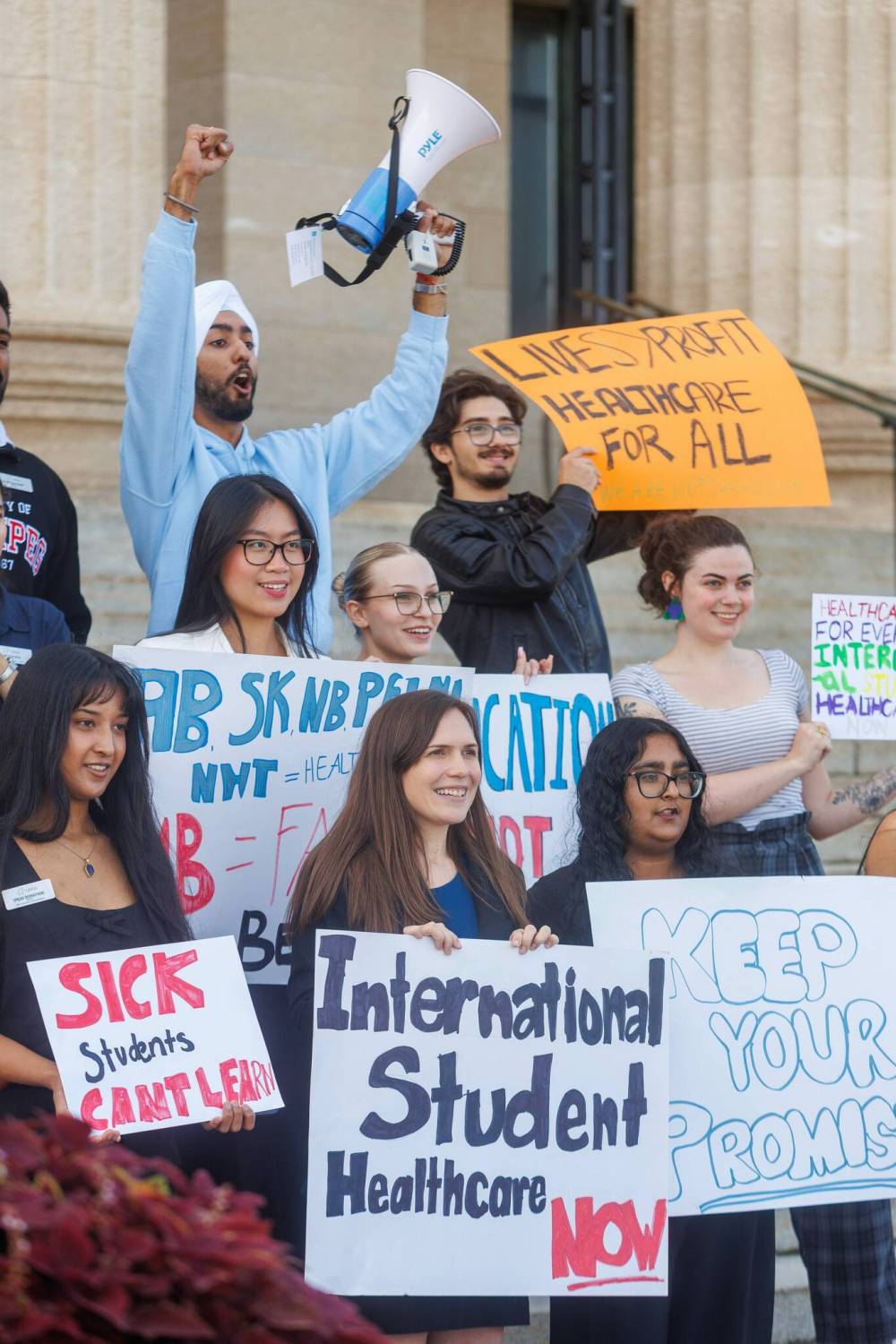Health care and fairness
Advertisement
Read this article for free:
or
Already have an account? Log in here »
We need your support!
Local journalism needs your support!
As we navigate through unprecedented times, our journalists are working harder than ever to bring you the latest local updates to keep you safe and informed.
Now, more than ever, we need your support.
Starting at $15.99 plus taxes every four weeks you can access your Brandon Sun online and full access to all content as it appears on our website.
Subscribe Nowor call circulation directly at (204) 727-0527.
Your pledge helps to ensure we provide the news that matters most to your community!
To continue reading, please subscribe:
Add Brandon Sun access to your Free Press subscription for only an additional
$1 for the first 4 weeks*
*Your next subscription payment will increase by $1.00 and you will be charged $20.00 plus GST for four weeks. After four weeks, your payment will increase to $24.00 plus GST every four weeks.
Read unlimited articles for free today:
or
Already have an account? Log in here »
“It is all of our responsibilities to make sure that every single Manitoban has equitable access to health care in this province, and that includes our international students, it includes our migrant workers, it includes folks who are undocumented. It means all Manitobans, those without identification, those who are transient and homeless as well.”
This was true in 2020, when Uzoma Asagwara first made this statement in the legislative assembly, and it is still true today.
When the Progressive Conservatives took away international students’ public health coverage in 2018, it was estimated that cutting the program would save $3.1 million — only .05 per cent of the overall provincial budget that year. This number pales in comparison to the hundreds of millions of dollars international students contribute to Manitoba’s economy every year. The savings don’t add up, and excluding international students comes at a high price — turning health care into a right for some, but a commodity for others.

The University of Manitoba Students’ Union holds a rally at the Manitoba Legislative Building last month calling on the provincial government to reinstate public health-care coverage for international students in Manitoba. (Mike Deal/Winnipeg Free Press files)
Understanding that this was an issue of basic fairness, the NDP promised to restore public coverage for international students if they won the election in 2023. Two years into their mandate, however, they have yet to keep this promise and restore the coverage a past NDP government first introduced in 2011.
What used to be a point of pride and competitive advantage for Manitoba is now a harmful gap in our universal health-care system.
In the course of my advocacy on this issue, I have heard from Manitobans who are concerned about the added strain restoring this coverage would place on an already overwhelmed public health system. I sympathize with those Manitobans who are struggling to access care and the health-care workers struggling to deliver it. Our health-care system remains in crisis after years of cuts and underfunding.
None of this is the fault of international students. More public investment — not cuts and exclusions — is the only clear solution.
Crucially, making these students pay privately doesn’t add capacity to the public health-care system.
The same nurses, doctors and other health professionals provide this care, but the money is then routed through private, for-profit insurance brokers.
In fact, charging students for expensive and inadequate private insurance ultimately puts added strain on the public system by denying these students proactive care and early interventions that might otherwise keep them out of crowded emergency rooms or urgent care centres.
Restoring this coverage makes economic sense, and would send a powerful signal to international students, newcomers, and all Manitobans that everyone is welcome and will be treated equally in Manitoba. It would serve as a rejection of divisive us-versus-them politics and the scapegoating of immigrants and racialized minorities that is all too prevalent in our politics today.
International students and their allies have been taking to the streets again in the past few months with a clear and simple message: health care has no borders. If our governments want to claim that we have a universal health-care system, the results have to match the rhetoric.
Continuing to charge international students privately for health care sends the message that universal health care is a right only for some, undermining this value for all of us.
Excluding international students from Manitoba’s public health-care system adds stress and fear to an already challenging set of circumstances for these students. Charging them privately for health care, when other provinces provide it publicly, weakens Manitoba’s competitiveness in attracting prospective international students to come and study here. This is something Manitoba cannot afford, especially in light of new federal caps on temporary residents.
Providing public health care for international students is about more than securing Manitoba’s competitive advantage, however. Access to health care is a life-and-death matter. Keeping this additional financial barrier in place means these students must often put off seeking preventative care, with potentially deadly consequences.
The calculus is clear: when it comes to denying this coverage, the savings are meagre, and the costs are high.
It’s past time for the provincial government to make good on its promise to restore this coverage and uphold its responsibility to provide barrier free public health care to all. The government must honour this collective responsibility and make the investments necessary to ensure that all who reside in Manitoba can access public health care based on medical need, not their citizenship status or their ability to pay.
» Noah Schulz is the provincial director of the Manitoba Health Coalition. This column previously ran in the Winnipeg Free Press.
